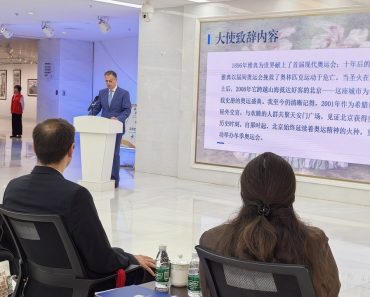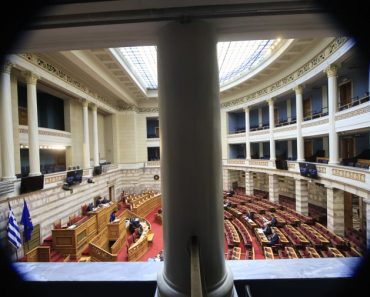Greece’s foreign policy has always straddled a structural tension: the pragmatic safeguarding of national interests on one side, and on the other, a deeply ingrained historical self-conception rooted in religious and cultural heritage. Nowhere is this more evident than in Athens’ fraught relationship with its powerful neighbor, Turkey – a dynamic that has defined Greek diplomacy for over half a century. Perceived threats from the East have driven successive governments not only to invest heavily in defense but also to pursue strategic alliances with countries like Israel, Egypt, France, Saudi Arabia, and more recently, the Gulf States.
The most recent example of the strategic dilemma facing Greek foreign policy can be found in its relationship with Egypt. From a geostrategic perspective, there are few countries in the region more important to Greece. A deeply rooted mistrust of Turkey shared by both Athens and Cairo serves as a strategic bond between the two nations. Their motivations differ considerably, but their skepticism toward Ankara unites them: while Athens is alarmed by Turkey’s growing assertiveness in the Eastern Mediterranean and beyond, President Abdel Fattah el-Sisi distrusts his Turkish counterpart because of Ankara’s overt alignment with the Muslim Brotherhood.
But a recent court ruling in the Egyptian port city of Ismailia has dealt a serious blow to the Egyptian-Greek entente. The decision by an appellate court on May 28 – effectively amounting to the expropriation of the historic Greek Orthodox Monastery of Saint Catherine in South Sinai – has triggered an outcry in Greece, particularly within ecclesiastical circles. The Archbishop of Athens likened the development to the fall of Constantinople in 1453, the ultimate year of fate in the national narrative of Hellenism.
The official response from the Greek government was notably restrained. Foreign Minister Giorgos Gerapetritis rushed to Cairo with a delegation of experts, publicly declaring his aim to salvage what could still be saved of the illustrious religious and historical heritage in the southern Sinai.
At the heart of this dispute lies something profoundly material: the question of who owns the ancient monastery complex and the tracts of land that the Desert Fathers have regarded as theirs – largely uncontested – for the past fifteen centuries.
That the Greek government is now putting on a brave face in the midst of an unfavorable situation is due above all to the apparent consensus with the Egyptians that the monastery should be preserved as a Greek Orthodox site of international importance. Cairo has an interest in maintaining the spectacular compound as a draw for the lucrative mass tourism industry. The continued presence of the monks – without whom the term “monastery” would be hollow – is considered essential to that effort.
Like all high-stakes foreign policy matters, the monastery dispute with Egypt has long since become fodder for domestic political infighting. From the ranks of the opposition come calls for a tougher stance. The government, critics argue, should elevate the issue to the international stage and publicly expose Egypt. One Greek member of the European Parliament went so far as to demand that Athens use its approval of multibillion-euro EU aid packages as political leverage. Such tactics are well known from the toolbox successive Greek governments have employed in their dealings with Turkey.
It is unlikely that the Greek government will resort to such measures. For overriding geostrategic reasons – in which the Turkey factor once again plays a decisive role – Athens will do everything in its diplomatic power to avoid a rupture with Cairo. Especially now, political cooperation with Egypt is of strategic importance: there are indications that Khalifa Haftar, the self-declared field marshal of eastern Libya, is seeking closer ties with the Turks – whom he had long rejected – and may be rethinking his opposition to the 2019 Libya-Turkey maritime memorandum. This would mark a development potentially hazardous to Greece’s position in the ongoing conflict over maritime boundary delimitation. Cairo is considered key to preventing Haftar moving too close to Erdogan’s Turkey. Confronted with the dilemma of defending either the interests of the monastic community or its broader geostrategic interests in the Eastern Mediterranean, the Greek government is likely to opt for the latter.
It would amount to a sober recognition of hard facts – and of Greece’s relative lack of leverage. Athens simply does not possess the means to enforce its culturally and historically rooted interests in Egypt. In the unforgiving realm of power politics, historical traditions and symbolic appeals carry little weight. The long history of Hellenism along the Nile is a case in point. Systematic policies of “Egyptianization” have left little behind of the once-flourishing Greek communities.
In future bilateral relations, the legacy of the past will likely play, at most, a secondary role. It would not be the first time that Greeks have had to come to terms – reluctantly- with a reality that no longer reflects the weight of history.
Dr Ronald Meinardus is a senior research fellow and the coordinator for research projects on Greek-German relations at the Hellenic Foundation for European and Foreign Policy (ELIAMEP).







